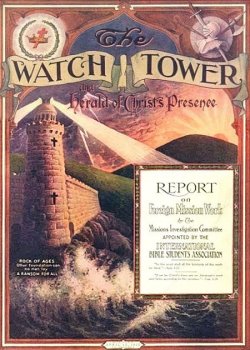no it is not! other is its own word "allos" and would appear and not implied.
"Other"
The Bible writers very often excluded the subject (and others with him) when using the term “all” (and “every”). This is a common usage even today. For example, the police lieutenant making an arrest of a criminal group might tell his men: “Arrest
Everyone in this room!” Obviously the lieutenant does not include himself (nor his men who are with him) even though he says “
everyone”! Or “the criminal tied up
everyone in the room before stealing the gems.”
In the respected
A Greek Grammar of the New Testament And Other Early Christian Literature (Blass, Debrunner, and Funk we find: #306 - "allos ['other' in NT Greek] is
sometimes omitted where we would add 'other'" And #480 - "(1) The
omission of the notion '
other, whatever' ... is specifically Greek" - University of Chicago Press, 1961.
And we find
NEB;
REB;
NJB;
NAB (‘91);
GNB; and
LB (for example) have honestly
added “other” at Ezek. 31:5 to show that a certain tree towered above “all
other trees” whereas
KJV,
NASB,
RSV (for example) have it towering “above all trees.” Since it does not tower above
itself, the Bible writer obviously excluded it from the phrase “all trees” (even though it is also a tree itself and a part of “
all trees”).
In Matthew 10:22, Jesus tells his followers: “and
you will be hated by
all [
pantos] because of my name.” -
NRSV. Certainly, Jesus didn’t mean that his true followers would be hated by Jesus himself or God.
And most certainly he didn’t mean they would be hated by themselves! (Remember, the subject is often understood to be excluded from the “all” statements.)
The Moffatt translation,
An American Translation,
The Common Bible,
The Amplified Bible, and translations by C. B. Williams, and Beck all
add “other” after “all” at 1 Cor. 15:24 (e.g. “when he will put an end to all
other government, authority, and power” - C. B. Williams,
The New Testament in the Language of the People, Moody Press, 1963). Although the
NWT does not happen to add “other” at that scripture, its translators (as well as every other Jehovah’s Witness on earth) would whole-heartedly agree that those who have added “other” there have done so properly and that the original Bible writer so intended the meaning! And conversely, at Jn 2:10 the
NWT has added “other,” and, although most [other] translations do not add it, I’m sure most people would agree that, whether actually written in the scripture or not, context demands such an understanding: “Every
other man puts out the fine wine first...”
Again, at 1 Cor. 6:18 the respected trinitarian Bibles
NIV,
NASB,
NEB,
REB,
AT,
GNB,
TEV,
JB,
NJB (among others) have
added “other” to the text. And the
NWT agrees whole-heartedly! And at Matt. 6:33
JB,
AT,
GNB,
TEV, and Beck (Lutheran scholar) have
added “other” (
NEB has
added “the rest”), and, again, the
NWT agrees.
Or how about Luke 13:2 where many trinitarian translations
add ‘other’:
“all the
other Galileans” -
NIV, Luke 13:2
“all
other Galileans” –
NASB
“all
other Galileans” –
NAB (’91)
“all
other Galileans” -
NRSV
“all
other Galileans” -
NKJV
“all the
other Galileans” –
RSV
“anyone
else in Galilee” –
NEB and
REB
“than any
other Galileans” -
JB
“than all
other Galileans” -
NJB
“any
other Galileans” -
AT
"everyone
else in Galilee" -
CEV.
"all
other Galileans" -
TEV.
"all
other Galilaeans" -
BBE
"
other people from Galilee" -
GodsWord
"all the
other Galileans" -
ISV NT
“the
rest of the Galileans” - Moffatt
When Gen. 3:20 tells us that Eve “was the mother of
all living,” does that really make her the mother of Adam? of all
animals? of all
plants? of
angels? of
God? So, although the literal Hebrew says “all,” we know
from the teachings of the rest of the Bible that this is a severely qualified “all,” and it would be perfectly honest to
add some qualifying word or phrase (“all
other humans” - after all, she, although the
subject, wasn’t her own mother, or Adam’s).
Notice also God’s words to Noah at Gen. 6:17, “I am going to bring floodwaters on the earth to destroy
all life under the heavens” -
NIV. Since the rest of the Bible shows that Noah did not die in that flood, this scripture could honestly be rendered “to destroy all [
other] life.” Noah knew God was using a qualified “all” and did not apply to himself and so should we!
When the angel of Jehovah told his mother about Ishmael that “His hand will be against every man, and
every man’s hand will be against him,” She did not think by this that Ishmael’s own hand would be against himself. As usual the “every” or “all”
excepted the one who was the subject.
There are many more examples. As noted in a previous post, “
With a little effort you can find many more similar examples.” Apparently, RN is unwilling or unable to use a “little effort” to back up his inaccurate statements.



